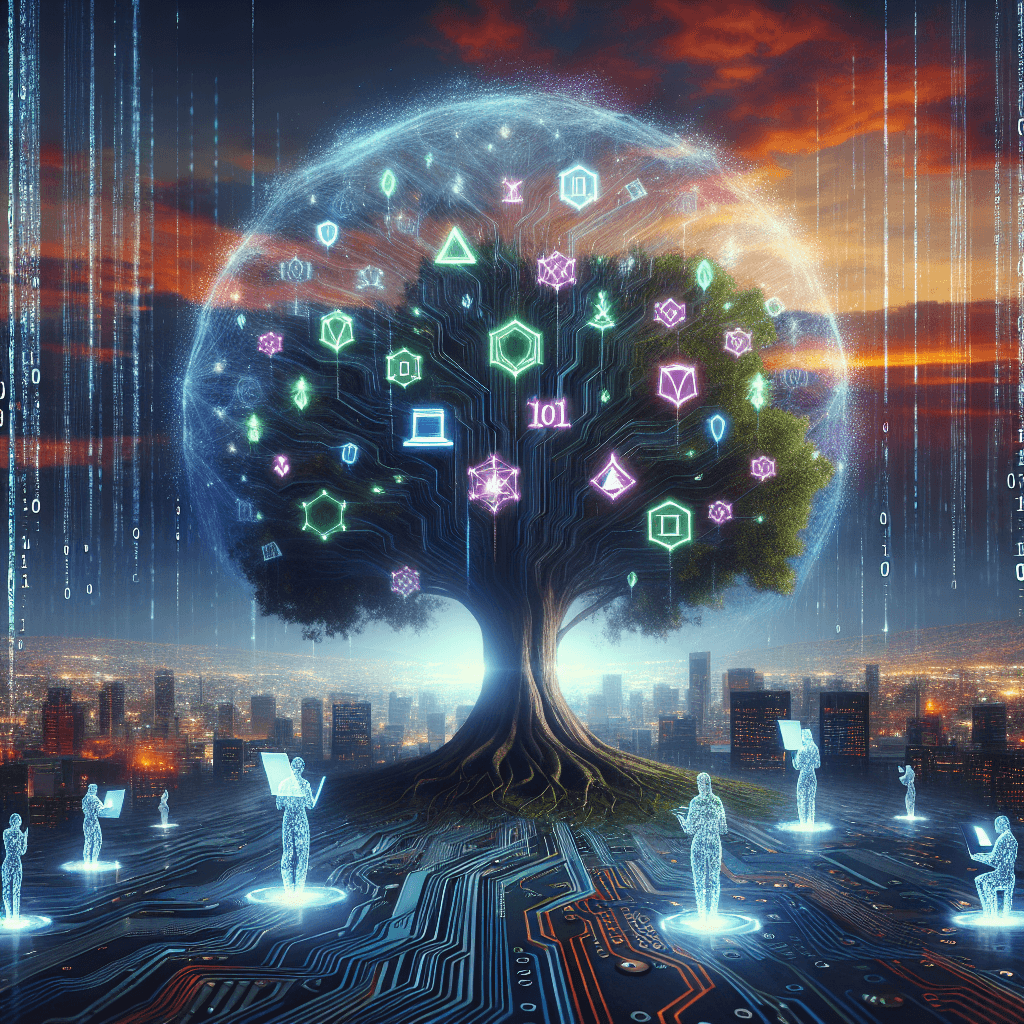Coding Beyond Tomorrow: Unveiling the Top Software Development Trends Dominating 2024
The software development landscape is in perpetual motion, a whirlwind of innovation relentlessly pushing the boundaries of what's possible. As we stand on the cusp of 2024, several trends have emerged, poised to redefine the way we build applications and shape the digital future. This isn't just about keeping pace; it's about anticipating the next wave and riding it to success.
So, buckle up as we delve into the top software development trends dominating 2024:
1. Artificial Intelligence: No Longer a Guest Star, but the Leading Role
AI is no longer a futuristic fantasy; it's interwoven into the very fabric of our technological reality. In 2024, expect AI to transcend its role as a mere tool and become an indispensable partner in software development.
Here's how AI is taking center stage:
- AI-Assisted Development: Imagine code completion on steroids. AI-powered tools are becoming increasingly sophisticated in understanding intent and context, offering highly accurate code suggestions, identifying potential errors, and even generating entire code blocks, significantly accelerating development cycles.
- Hyper-Personalization: From e-commerce recommendations to tailored learning experiences, AI's prowess in analyzing user data enables developers to create highly personalized applications that cater to individual needs and preferences.
- AI-Powered Testing: Say goodbye to tedious manual testing. AI-driven testing tools automate the process, identifying bugs and vulnerabilities with exceptional speed and accuracy, leading to more robust and reliable software.
Practical Takeaway: Embrace the power of AI. Explore AI-powered development tools, delve into machine learning frameworks, and discover how to leverage AI to enhance your applications and streamline your workflow.
2. The Rise of the Machines: Intelligent Automation Changes the Game
As businesses seek increased efficiency and cost savings, automation has become paramount, and 2024 will witness intelligent automation taking center stage.
- Robotic Process Automation (RPA): RPA is revolutionizing the way businesses operate by automating repetitive, rule-based tasks, freeing up human capital to focus on higher-value work. Expect to see RPA integrated into a wider range of business processes, from data entry and invoice processing to customer service and IT support.
- AI-Powered Hyperautomation: Taking automation to the next level, AI injects intelligence into the process. Imagine systems that not only automate tasks but also learn from data, adapt to changing conditions, and make autonomous decisions – this is the promise of hyperautomation.
Practical Takeaway: Identify areas in your work or projects that could benefit from automation. Explore RPA tools, learn the fundamentals of AI-powered automation, and position yourself at the forefront of this transformative trend.
3. Beyond the Hype: Blockchain Finds its Footing
While cryptocurrencies often steal the spotlight, the underlying blockchain technology is quietly revolutionizing various industries, and software development is no exception.
Here's how blockchain is making its mark:
- Enhanced Security: Blockchain's inherent security features, including immutability and decentralization, make it ideal for building tamper-proof applications, particularly in sectors dealing with sensitive data like finance and healthcare.
- Decentralized Applications (dApps): dApps leverage blockchain's decentralized nature to create transparent, secure, and censorship-resistant applications, empowering users and fostering trust.
- Supply Chain Transparency: Blockchain's ability to track and verify transactions in real-time is revolutionizing supply chain management, providing unprecedented transparency and traceability.
Practical Takeaway: Explore blockchain development frameworks, learn the fundamentals of smart contracts, and discover how this transformative technology can enhance security, transparency, and trust in your applications.
4. The Future is Edge: Edge Computing Takes Center Stage
As we increasingly rely on data-intensive applications, such as IoT devices and AI-powered systems, the limitations of traditional cloud computing become apparent. This is where edge computing steps in, bringing computation and data storage closer to the source of data generation.
Why edge computing matters:
- Reduced Latency: By processing data closer to the edge, latency is significantly reduced, enabling real-time decision-making and responsive applications, crucial for areas like autonomous vehicles and remote surgery.
- Increased Bandwidth Efficiency: Edge computing alleviates the strain on networks by processing data locally, reducing the amount of data that needs to be transmitted to the cloud, leading to significant bandwidth savings.
- Enhanced Security and Privacy: Processing sensitive data at the edge minimizes the risk of data breaches during transmission and enhances privacy by keeping data localized.
Practical Takeaway: Familiarize yourself with edge computing architectures and explore platforms that enable you to develop and deploy applications at the edge.
5. The Low-Code/No-Code Revolution: Empowering Citizen Developers
The demand for software development continues to outpace the supply of skilled developers. Low-code/no-code platforms bridge this gap by enabling citizen developers – individuals with limited coding experience – to build applications using intuitive, visual interfaces.
- Accelerated Development Cycles: Low-code/no-code platforms significantly reduce the time and effort required to build applications, allowing businesses to respond rapidly to changing market demands.
- Increased Agility and Innovation: By empowering non-technical users to participate in the development process, businesses can unlock innovation and foster a more agile and responsive development culture.
Practical Takeaway: Explore the world of low-code/no-code platforms and experiment with building simple applications. While these platforms may not replace traditional coding entirely, they offer a valuable tool for rapid prototyping and empowering non-technical users.
Coding Beyond Tomorrow: Your Journey Starts Now
The software development landscape of 2024 is a thrilling fusion of cutting-edge technologies and innovative approaches. By embracing these trends, developers and businesses alike can unlock unprecedented opportunities and shape the digital future.
Ready to dive deeper into these transformative trends and equip yourself with the skills to thrive in this dynamic landscape?
**Explore the diverse range of courses and resources on [01TEK](your website link here) and embark on your journey to becoming a
Vision without action is a daydream. Action without vision is a nightmare.
Japanese Proverb



